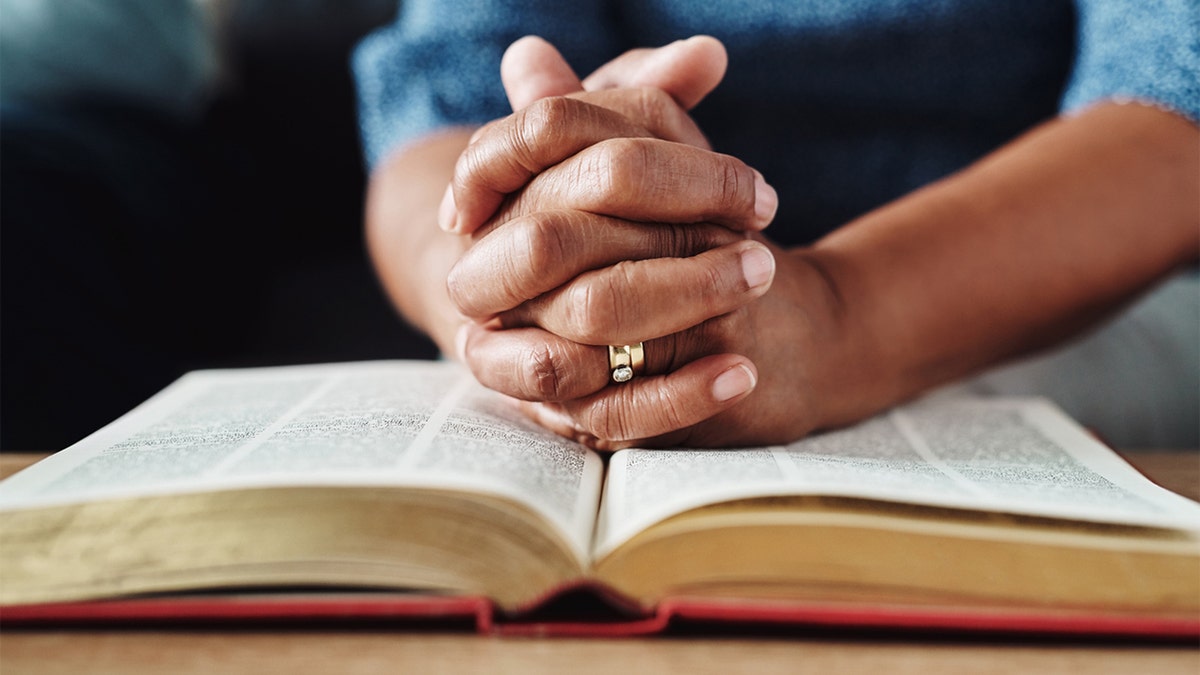All you need to know about Ash Wednesday
Father Jonathan Morris answers common questions about the first day of Lent
Christians around the world continue their Lenten observations, as this Sunday, March 20, marks the third Sunday of Lent of 2022.
Lent is known as a season of fasting — or "withdrawing from some things in order to draw closer to God and to others," Glenn Packiam, lead pastor of New Life Downtown in Colorado Springs, Colo., told Fox News Digital in an email exchange.
"Fasting makes space in our distracted and comfortable lives to somehow share in the suffering [of the Ukrainians] by our own fasting and prayer."
Packiam, who is author of "The Resilient Pastor" (Feb 2022), said that his church leadership invites its worship community to "embrace practices that help us disengage — and participate in practices that help us engage."
He said that fasting, at its core, is about creating a space to truly see.
This is particularly key right now, as the ongoing tragedy of the war in Ukraine by Russian forces wipes away so many of the homes, workplaces and properties of Ukrainians.
UKRAINE-RUSSIA WAR: LIVE UPDATES
"As we think of nearly 3 million Ukrainians seeking refuge in neighboring countries," said Packiam, "we think of their faces and stories. Fasting makes space in our distracted and comfortable lives to somehow share in the suffering by our own fasting and prayer."

Gutted cars are shown here after a night air raid in the village of Bushiv, west of Kyiv, Ukraine, on Friday, March 4, 2022. (AP Photo/Efrem Lukatsky)
Here are three ways in which fasting during Lent helps us to see with our "spiritual" eyes, said Packiam.
1) Fasting creates space to see ourselves
In the Book of Genesis, the Bible tells us that Jacob, grandson of Abraham in the Old Testament, sent his family, servants and animals across a river and stayed behind to wrestle a "man" until daybreak, said Packiam.
In Genesis, this "man" is also referred to as God.
ASH WEDNESDAY, START OF LENT: WHEN ‘WORLD IS A MESS,’ WE MUST ’TURN TO GOD'
When this "man" asks for his name, Jacob gives it, for the very first time — and by doing so, he finally owns up to his very identity.
For context, here’s a little background information on the name "Jacob," and why it matters. Jacob was a popular boy’s name in Old Testament times, and meant "the one who grasps," "the angler," "the deceiver" or "the supplanter."

During the season of Lent, Pastor Glenn Packiam explained why we pray to God, "Lord, have mercy; Christ, have mercy." He also advised a Lenten practice for all Christians: Read through one of the Gospels in the Bible, he said, perhaps in a new translation or in just one or two sittings — "so that you might see Jesus with new eyes."
After wrestling with this "man" (God), Jacob suddenly turned from a cunning, deceitful figure in the Bible to a hero. He received God’s blessing and was renamed Israel.
"During Lent, we fast so that we can be led to repentance," Pastor Packiam said.
That's why the season of Lent begins with Ash Wednesday, he noted. It's a day to "recognize our complicity" with sin and all the ways it "infects our lives and communities."
FIRST SUNDAY OF LENT: ‘REFLECT, REPENT’
"Sin is not just ‘out there’ in the world — it’s ‘in here’ in us," said Packiam. "When we cannot hide behind the projections of ourselves on social media, when we cannot distract ourselves with TV and phones and internet, when we cannot indulge ourselves in food and drink, then we come face to face with ourselves — our ugliness and our brokenness."
"We begin to see God, not as we have imagined Him, not as we have crafted Him to be, not a God made in our image, but God as He is."
Packiam said this is why we pray, "Lord, have mercy. Christ, have mercy."
2) Fasting creates space to see God
In the New Testament, the story is told of how the first face ever seen by the blind beggar Bartimaeus is the face of Christ, his healer, said Packiam.
Along with his sight, his deepest place of brokenness is also healed.
"This is what happens to us," Packiam explained. "As we learn to repent and confess, as we embrace our mortality and our finiteness, we are not left in our brokenness."
SECOND SUNDAY OF LENT: PASTOR RECALLS WORSHIPPING WITH CHRISTIANS IN UKRAINE
Instead, he said we are "cleansed and healed … We begin to see God, not as we have imagined Him, not as we have crafted Him to be, not a God made in our image, but God as He is."

Pastor Glenn Packiam of Colorado shared thoughts with Fox News Digital just ahead of the third Sunday of Lent this year, which is on March 20, 2022. (Parallel Media)
Packiam continued, "In the light of His face, all other visions of God may as well have been blindness. This is God and He is and has always been — and will always be — the God we see revealed in Jesus Christ. He is the God who welcomes the marginalized, who suffers with us, who saves and forgives the ones we would rather condemn and dismiss."
WHAT IS LENT AND WHY DO WE OBSERVE IT?
Packiam recommended this Lenten practice for all Christians: Read through one of the Gospels in the Bible, he said, perhaps in a new translation or in just one or two sittings, "so that you might see Jesus with new eyes."
3) Fasting creates space to see others
Within the context of Lent and the practice of fasting, Pastor Packiam’s thoughts turned back to the millions fighting or fleeing the war in Ukraine.

A Ukrainian man is shown kissing his wife on a train to Lviv as they say goodbye at the Kyiv station, Ukraine, on March 3. 2022. The husband stayed behind to fight for his country while his family sought refuge in another country. The war in Ukraine is now in its fourth week. (AP Photo/Emilio Morenatt)
"Isaiah 58 reminds us that God doesn't want fasting to simply be a ritual performance to pad our ‘spiritual stats,’" he said. "Fasting is designed to turn us outward to the ‘other’ — the stranger, the outsider, the enemy — or the one whom we have forgotten is also our neighbor."
UKRAINIAN PASTOR REMAINS AMID WAR, BRINGS HOPE TO THE SUFFERING
Packiam noted that we can take the money we might have spent on the things we’ve given up — coffee, chocolate, clothes or anything else — and "give sacrificially to those in need."
"When we fast, we create space to see. We turn three ways: inward, God-ward and outward."
He noted that this is why his church, during Lent, collects a special offering "for the needy and the poor, the marginalized and the oppressed."
He said that sometimes the collected money goes to a local agency doing good work in the community, while at other times it goes toward a family in need within the church.

Ukrainian cities have come under heavy bombardment from Russian forces. (Oleksandra Ustinova MP)
Fasting during Lent has many benefits, said Packiam.
"When we fast," he explained, "we create space to see. We turn three ways: inward, God-ward and outward."
CLICK HERE TO GET THE FOX NEWS APP
Packiam also offered this prayer for the third Sunday of Lent: "Heavenly Father, you have made us for yourself, and our hearts are restless until they rest in you: Look with compassion upon the heartfelt desires of your servants and purify our disordered affections, that we may behold your eternal glory in the face of Christ Jesus, who lives and reigns with you and the Holy Spirit, one God, forever and ever. Amen."










































